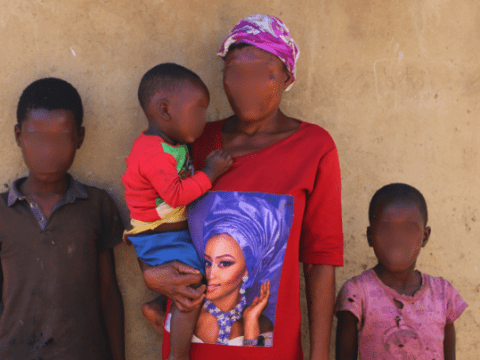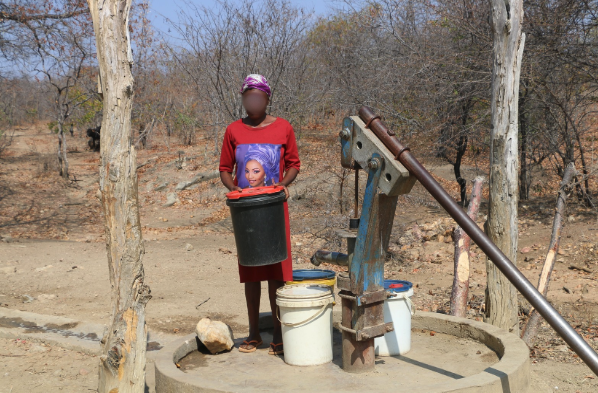El Niño Rampage in Mudzi as Food and Water Crisis Worsens

By Isheunesu Gwasha
On 3 April, 2024, Zimbabwe declared a national disaster in response to the devastating effects of the El-Nino-induced drought, which brought about soaring temperatures and low rainfall. Consequently, 7.7 million Zimbabweans found themselves facing the undesirable impacts of the extreme weather patterns.
At the epicentre of this crisis lies Mudzi, a community nestled in Mashonaland East Province. Among its inhabitants is *Tamuka (not her real name), a resilient 41-year-old mother residing in Chiwaka Village, who bravely narrated the hardships she faces in ensuring her five children have enough food and access to clean, safe water.
Over the years, like the majority of Zimbabweans living in rural areas, *Tamuka sustained her family by cultivating maize, groundnuts, cowpeas, and millet. The surplus produce from these endeavours served as a source of income, enabling her to provide for her children. However, the relentless drought has disrupted this way of life, leaving *Tamuka and many others struggling to fend for their families.
As a result, *Tamuka has turned to gold panning, toiling tirelessly every day except Sundays, “I dedicate my Sundays to God, that is when I go to church,” she revealed.
*Tamuka explained that, on a relatively good week, she can uncover one point of gold, and sell it for around US$6-00 (equivalent to US$24-00 monthly), an insubstantial sum that she uses to procure essential food items such as mealie meal, sugar, and flour. This dire situation has coerced her to ration meals and limit her children to just two daily meals. “They eat sadza or home baked bread in the morning then eat in the evening when they get back from school. Most of the times my children have to endure the school day without having eaten anything,” *Tamuka confided.
“One of the most painful things is to leave my 1 year 2 months old-son with my neighbours while I pursue gold panning,” *Tamuka disclosed the anguish, a moment that sadly summarises the tough choices she is forced to make in order to provide for her family.

Chiwaka Village, home to approximately 148 households, relies on just three old water hand-pumps for their water supply. One of these water hand-pumps, located nearly a kilometre from *Tamuka's home, has become increasingly unreliable, “Since last year in August, we cannot depend on the water hand-pump. In the morning, when someone fills 5 buckets, it then dries up,” she said.
"My neighbours and I have to travel 7 kilometres to Nyamutsanza River to get water because the nearby water hand-pumps are usually dry. However, the river is also dry, so we access water from traditional sand abstraction wells that we dig in the river. We use this water for drinking, washing, watering our small vegetable gardens, as well as for our livestock," *Tamuka explained.
She also mentioned that she sometimes has to make the journey carrying her child on her back.
This food and water crisis is not only affecting people, but it has also had a severe impact on livestock. The El-Nino-induced drought has taken a toll on Mudzi’s grazing lands. Livestock have been forced to rely on tree leaves. Rivers like Nyamutsanza, where *Tamuka fetches water, have dried up.
According to *Tamuka, livestock owners are taking innovative steps to ensure their animals have access to water. "Those with many animals go to the river with shovels to dig traditional sand abstraction wells for their livestock to access water to drink," she mentioned. *Tamuka, who owns 1 goat that belongs to her mother, generously shares the water she fetches with her goat to ensure it stays hydrated, "When I go to fetch water for my children and myself, I share the water with the goat so that it can drink as well."